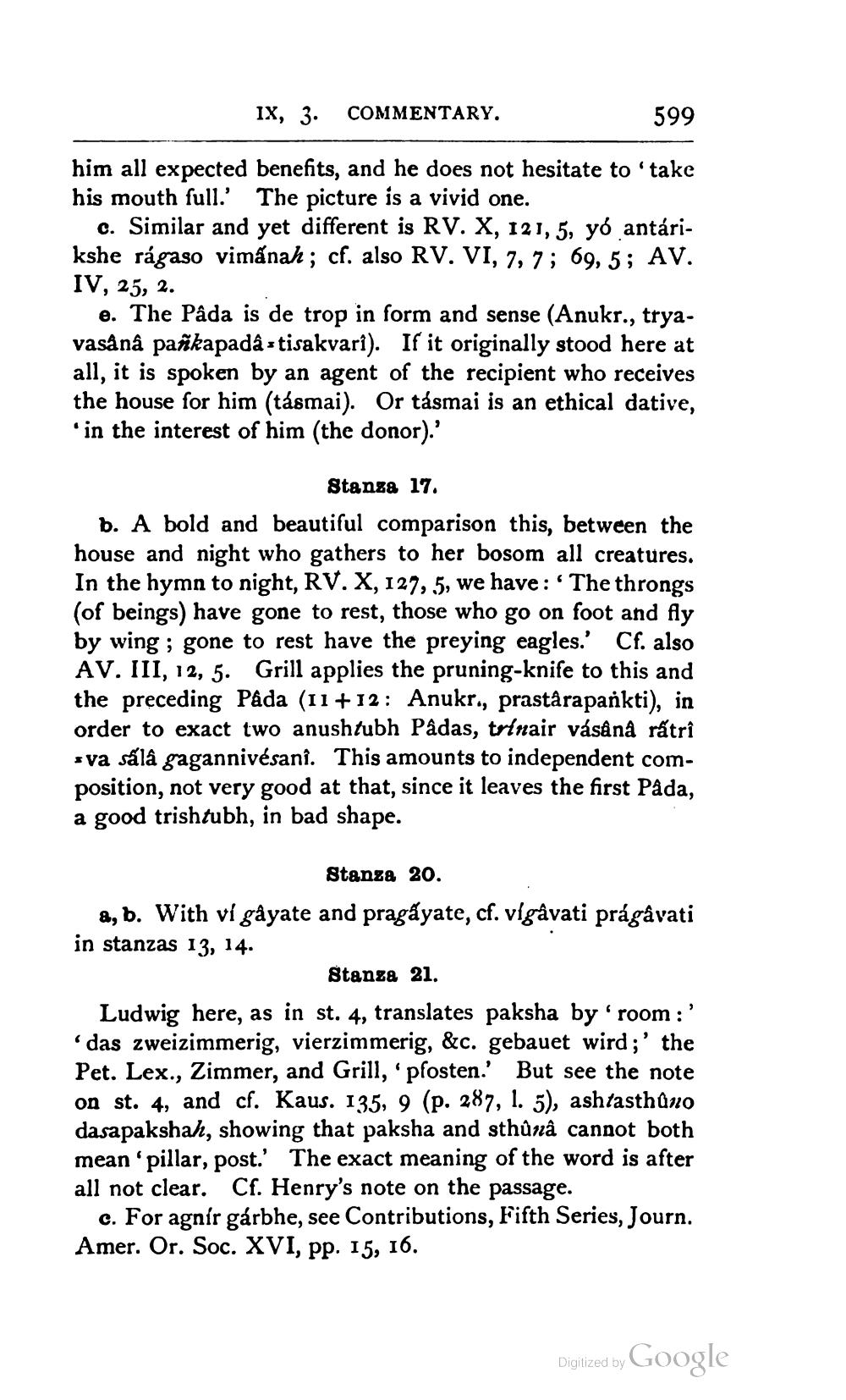________________
IX, 3. COMMENTARY.
599
him all expected benefits, and he does not hesitate to take his mouth full.' The picture is a vivid one.
c. Similar and yet different is RV. X, 121, 5, yó antárikshe rágaso vimấnah ; cf. also RV. VI, 7, 7; 69, 5; AV. IV, 25, 2.
e. The Pâda is de trop in form and sense (Anukr., tryavasânâ pañkapadâ stisakvari). If it originally stood here at all, it is spoken by an agent of the recipient who receives the house for him (tásmai). Or tásmai is an ethical dative, in the interest of him (the donor).'
Stanza 17. b. A bold and beautiful comparison this, between the house and night who gathers to her bosom all creatures. In the hymn to night, RV. X, 127, 5, we have: 'The throngs (of beings) have gone to rest, those who go on foot and fly by wing ; gone to rest have the preying eagles.' Cf. also AV. III, 12, 5. Grill applies the pruning-knife to this and the preceding Pada (11 +12: Anukr., prastarapankti), in order to exact two anushtubh Padas, trinair vásânà rấtri sva sálâ gagannivesani. This amounts to independent composition, not very good at that, since it leaves the first Påda, a good trishtubh, in bad shape.
Stanza 20 a, b. With vi gåyate and pragấyate, cf. vígâvati prágâvati in stanzas 13, 14.
Stanza 21. Ludwig here, as in st. 4, translates paksha by room :' das zweizimmerig, vierzimmerig, &c. gebauet wird;' the Pet. Lex., Zimmer, and Grill, 'pfosten.' But see the note on st. 4, and cf. Kaus. 135, 9 (P. 287, l. 5), ashtasthûno dasapakshah, showing that paksha and sthûrâ cannot both mean'pillar, post. The exact meaning of the word is after all not clear. Cf. Henry's note on the passage.
c. For agnir gárbhe, see Contributions, Fifth Series, Journ. Amer. Or. Soc. XVI, pp. 15, 16.
Digized by Google




